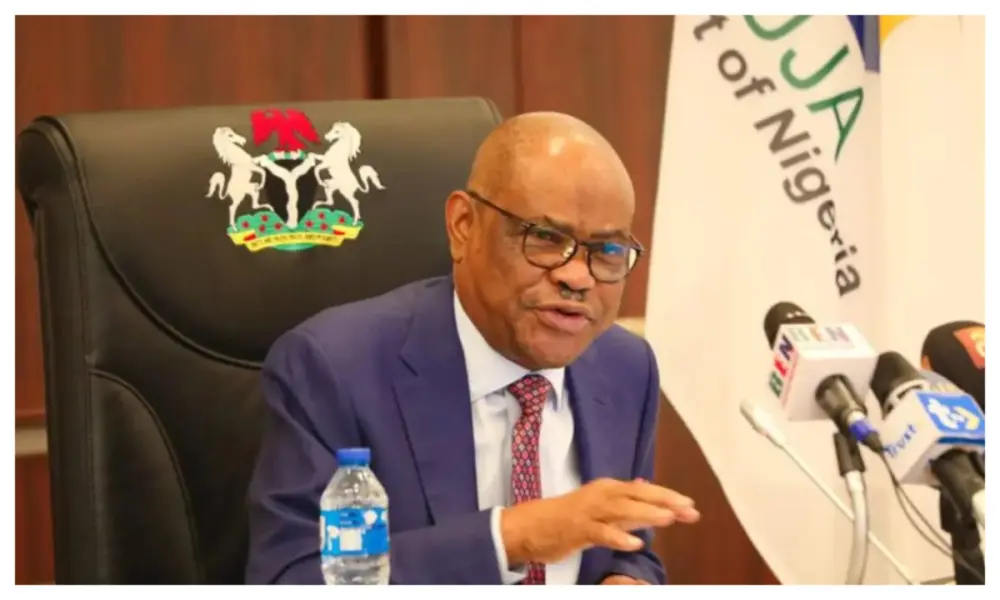The Centre for Peace and Environmental Justice (CEPEJ), an organization dedicated to environmental preservation and peace advocacy, has declared its intention to oppose the departure of the Shell Petroleum Development Company (SPDC) from the Niger Delta. This stance comes in response to SPDC’s announcement of its plans to divest its operations in Nigeria’s onshore oil and gas sector to a group of Nigerian companies, without addressing the need for environmental cleanup and compensation for the communities impacted by its activities.
The group’s stance was communicated by its National Coordinator, Sheriff Mulade, during a press briefing held yesterday in Abuja.
“As environmentalists and stakeholders of the Niger Delta, we have only one option; we are calling on the Federal Government to do the needful, but if the government fails, we will institute a suit restraining the sale of those assets, which we have already commenced the process. We will not allow Shell to exit our land until the proper cleanup is done,” he said.
According to him, President Bola Tinubu’s administration needs to take decisive action to safeguard the environment of the Niger Delta from further deterioration caused by oil spills, illegal bunkering, and oil theft.
He stressed the urgent need to address these concerns through a collaborative buyout process, adhering to international best practices observed in other regions.
He expressed their lack of surprise but noted their disappointment at the recent sale of SPDC’s onshore assets to an indigenous oil company, led by Renaissance and four other firms.
Mulade lamented that Nigeria stands alone globally in allowing a multinational oil corporation to ravage its environment and withdraw its investments without facing repercussions.
He underscored that SPDC has caused extensive damage to the region without any commitment to remediate the ecological harm and degradation resulting from their exploration activities.
“We would want to strongly appeal and advise the Federal Government, led by President Tinubu and the new buyers, the indigenous oil firms, to equally consider buying the onshore liabilities , left by the SPDC, if they wish to operate peacefully in the region.
“Over the years, the Niger Delta has borne the brunt of environmental degradation resulting from Shell’s oil and gas exploration activities. The overall well-being cannot be overstated.
“Consequently, we implore Mr. President, as the custodian of our nation’s interests, to address the following:
“Compensate communities affected by Shell’s operations in the Niger Delta region. We urge your administration to ensure fair and just compensation for irreversible damage caused to their lands, water sources, and ecosystems.
“The proposed sale of Shell onshore assets must include stringent provisions for addressing existing liabilities. These provisions should guarantee the new owners assume responsibility for mitigating and rectifying environmental damage and restoring the affected communities ecosystem.
“Allocate a portion of the proceeds from the sale towards comprehensive community development initiatives. These initiatives should focus on sustainable projects that enhance education, healthcare, infrastructure, and economic opportunities for the affected communities.
“Establish mechanism to ensure transparency and accountability in the entire process of the asset sale. The affected communities should be activity involved in the decision-making processes to safeguard there interests.”
The group urged the Federal Government to carefully consider the urgent issues at hand and postpone approval of the transaction until proper measures are taken to address the environmental degradation in the Niger Delta.
Furthermore, the CEPEJ National Coordinator accused Mele Kyari, the Group Chief Executive Officer of the Nigerian National Petroleum Company Limited (NNPCL), of promoting criminal activities by destroying evidence of oil theft in the Niger Delta, thereby exacerbating damage to the region.
In response to Kyari’s acknowledgment that NNPCL had dismantled over 5,500 unauthorized refineries and nearly 4,500 illegal pipeline connections in the past three years, Mulade criticized this action as contrary to global environmental standards.
Kyari, speaking during a 2024 lecture at the Faculty of Science in Obafemi Awolowo University, Ile-Ife, Osun State, titled “Energy security, sustainability and profitability in Nigeria: Advances, challenges and opportunities,” identified pipeline vandalism, crude oil theft, and rapid population growth as major challenges to energy security in Nigeria.
Mulade acknowledged the statistics provided by NNPCL regarding its efforts against oil theft and vandalism in the region but expressed concern that the continuous destruction of evidence by NNPCL and Nigerian security agencies is fostering criminal activities, leading to oil spillages that harm aquatic and agricultural ecosystems in the Niger Delta.
“The continuous destruction of the ecosystem and aquatic lifestyle has left the youths with no option than to engage in criminal activities for survival since the means of livelihoods is being destroyed as a result of the incessant oil spill, of largely fishing and crops farming.”
Asked to access the efforts by government to clean up Ogoni land, Mulade said: “We will continue to commend the United Nations, which based on its report gave that opportunity for the cleanup of Ogoniland. But I can tell you authoritatively that that clean up to many of us who are environmentalist, is political. There’s nothing tangible on ground to write about. You can only see the clean up exercise and the process on document, there’s nothing much. To many of us, we can describe it as a fail project to some extent.
“It will interest you to know that in the Niger Delta, there are areas more polluted than Ogoniland but the good thing is that the people of Ogoni took it upon themselves and have been able to push their case to the international level, that is why we are talking about Ogoni. There are areas that are more destroyed as a result of exploitation and exploration activities in the Niger Delta.”



